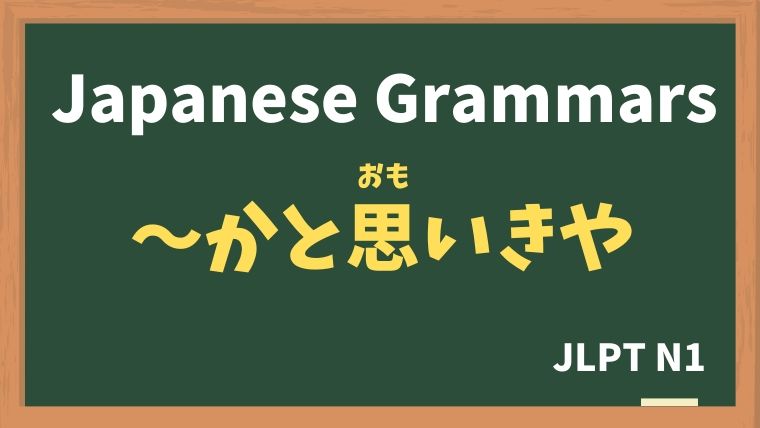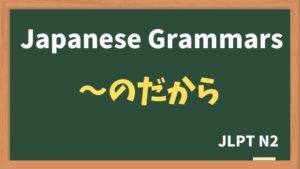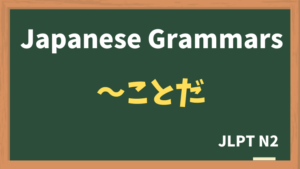
Explanation:〜かと思いきや
fa-check-circleMeaning
"〜と思ったが、実際は(違う結果になった)”
fa-check-circleForm
V(plain form)+ かと思いきや
イA(plain form)+ かと思いきや
ナA(plain form)+ かと思いきや
N(plain form)+ かと思いきや
fa-check-circleJLPT Level
N1
fa-check-circleNote
「〜と思いきや」と言うこともできます。
Sample sentenes
・息子は部屋で勉強しているかと思いきや、寝てた。
・その映画はホラーかと思いきや、コメディでした。
・10分早くテストが終わったと思いきや、裏にも問題があった。
・あまり勉強していなかったので、テストの結果はひどいだろうと思いきや、80点もあった。
・マークさんは日本で働いたことがあるので、日本語が話せるかと思いきや、全然話せなかった。
・そのレストランは毎日行列ができているので、おいしいかと思いきや、そうでもなかった。
Vocabulary
| Japanese |
English | |
| - | ホラー | horror |






